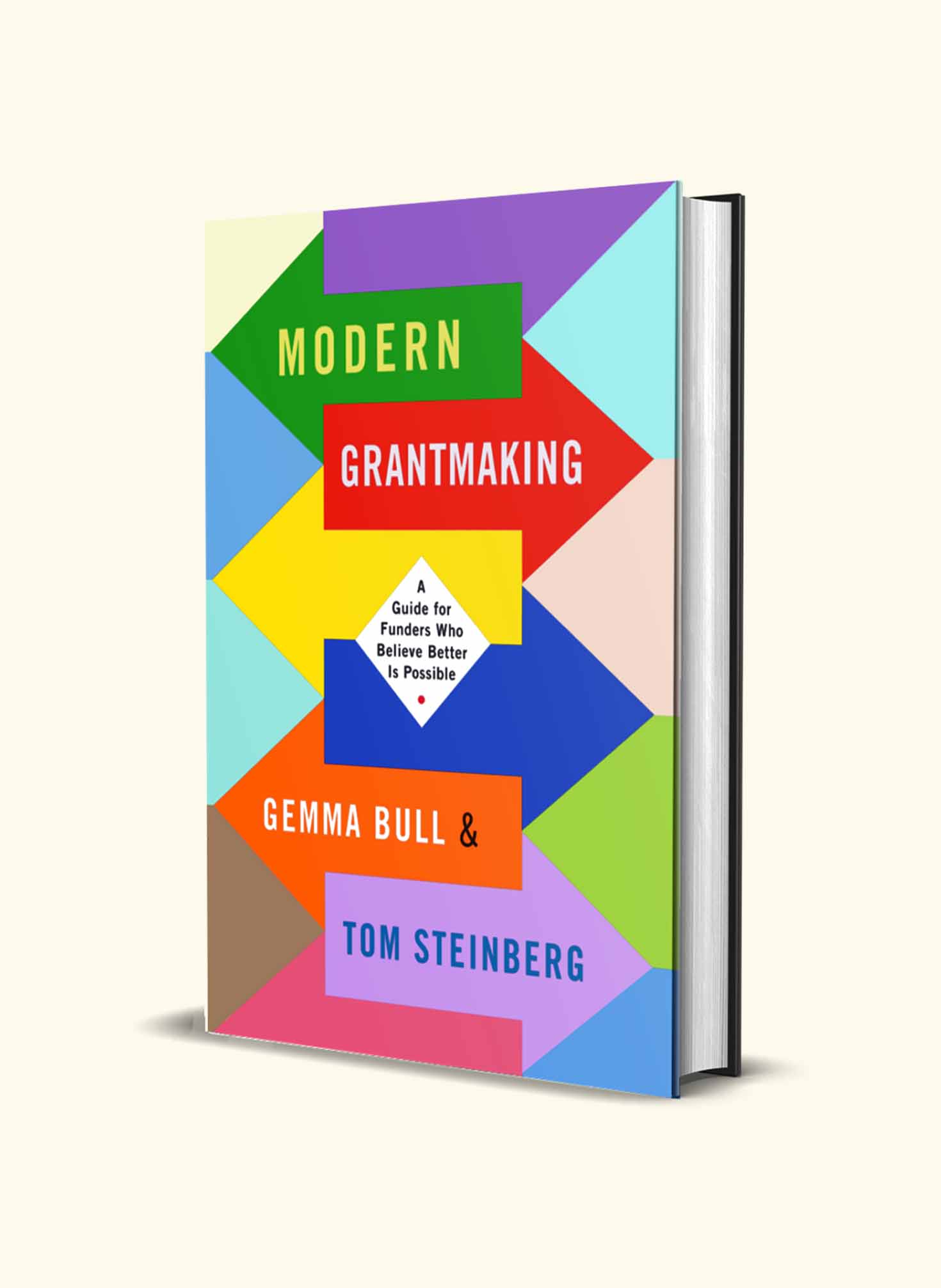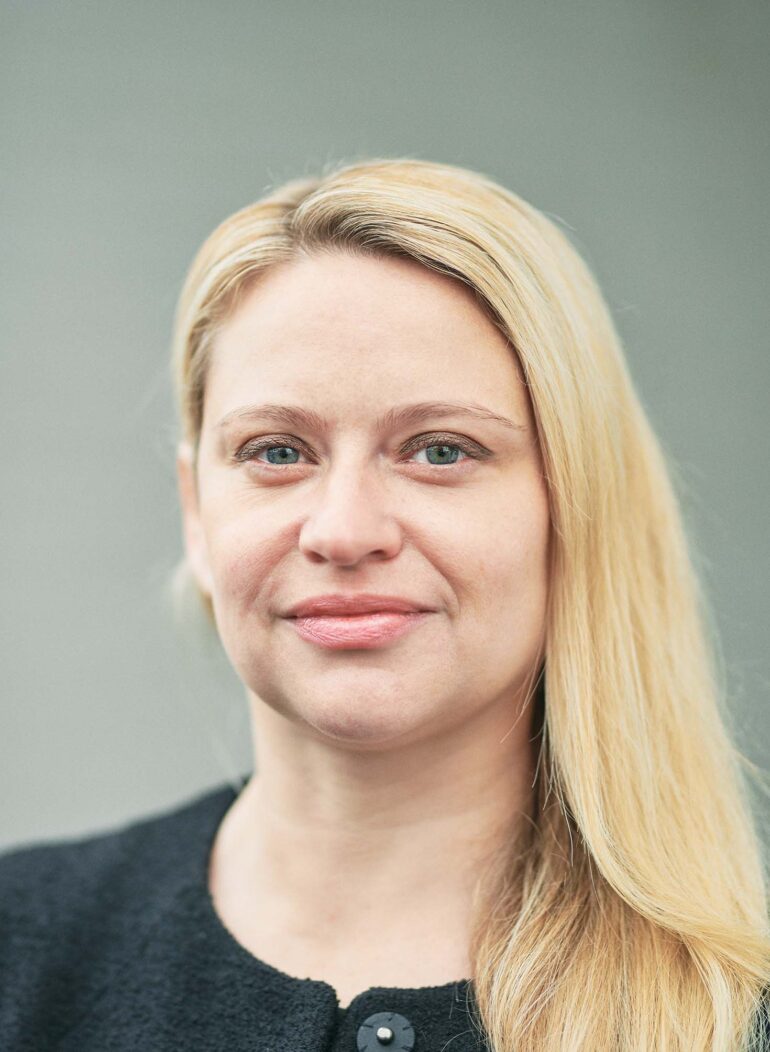Gemma Bull advocates a modern method of allocation of funding based on the five values humility, equity, evidence, service and diligence. Diversity is a question of equal opportunities, she says. And it must be intrinsically motivated.
In the book Modern Grantmaking you talk about privilege and power at length – what goes wrong in philanthropy?
One thing is certain: they are big issues for philanthropy. Most of the grantmakers we met during our research for this book are middle-class, have university degrees and have positions of societal power – they are privileged. This privilege can stand in stark contrast to some who receive the grants, who may belong to more disadvantaged groups.
What is the consequence of this?
The two groups – grantmakers and people who receive grants — can come from different backgrounds. The people in the funding organisations, especially trustees, may have very little experience of things such as their youth club closing for lack of funds, and are unlikely, according to UK statistics at least, to have experienced poverty or perhaps racism. How do decision makers know that they are offering the most accessible and useful funding if they have not experienced issues the funding is meant to help tackle? Being privileged isn’t a moral failing. We can’t help what life we were born into. However, more grantmakers should realise and accept that they have power and privilege because ultimately this could lead to more accessible and effective funding.
People are calling for more diversity in the foundation world – does it solve the problem?
I have seen organisations that think about who is on their board of trustees and who is not, and who their funding goes to. They are careful about diversity in their workforce. But the best funding organisations recognise that diversity should be intrinsically linked to equity and inclusion. These organisations pay a great deal of attention to creating a truly inclusive workplace so that when they hire for more diversity, these people are supported properly and want to stay.

Guide to awarding grants based on values. Modern Grantmaking by Gemma Bull and Tom Steinberg
Do inclusive boards of trustees make better decisions, or just different ones?
A board of trustees should represent the objectives of the foundation. It plays a role in what regions the foundation covers and the topics it handles. So it makes sense for people to be involved that have had experience in those areas. I’ve noticed that organisations with a diverse committee make decisions that they judge to be better in relation to their strategy and mission.
How diverse are boards of trustees in the UK?
They are mostly not representative of UK society in general. They consist primarily of white men over the age of 50. It’s also a question of who can afford to commit themselves to an often unpaid position.
What role do management and staff members play in diversity?
The whole organisation has to be taken into account: who’s on the board of trustees? What kind of people do they want working for them? What should a job description look like? There are various movements in the UK that allow exchange among grantmaking foundations. For example, the 2027 initiative aims to motivate young, working-class people to engage in funding organisations.
It can take quite a while for things to change…
If we are convinced that grantmaking needs to become more up to date, more accessible and fairer, then everyone has to think about how they can contribute. Anyone who works for an organisation that is already very diverse and has gained a lot of practical experience should share this experience, inspire and motivate others and say to them: you can do it too.
What prompted you to write a whole book for this message, alongside Tom Steinberg?
Tom and I have a lot of experience with non-profit organisations – both in setting them up and running them in the UK and internationally. We wrote the book first because a large proportion of the existing literature on philanthropy and the allocation of funds is aimed at millionaires, billionaires and decision makers at large funding organisations. This fails to address the large majority of people who work as grantmakers day to day in all different kinds of organisations.
And second?
We wanted to help people in this sector not only improve their own skills, but also to reform grantmaking overall.
Why do they have to change?
When we began our research, it became clear that we could write a whole book on the problems of ‘traditional grantmaking’ alone. We heard complaints of arrogant behaviour, discrimination, a lack of empathy for the applicants and a disregard for evidence. But Tom and I wanted a solution-oriented approach. Primarily, we wanted to share information, provide inspiration and offer general support for practical work. The book is intended to contribute towards making funding fairer and more accessible and useful.
Is a book the right format?
We had discussions about the format. We decided on a handbook that you could put on your desk or have on your e‑reader and use to find helpful tips without having to read the entire book.
Your book is entitled Modern Grantmaking – a completely new approach?
It’s important to understand that modern grantmaking is not just a new name for an existing concept, such as a participatory approach. The definition of modern grantmaking is not based on one single practice. The important thing is that grants should be made based on several values, like, as discussed, equity.
In addition, you name humility, evidence, service and diligence: Are these timeless norms
It’s true that in the UK, more grantmakers are discussing and demonstrating how to promote equity. But in general these values should be considered timeless.
Is modern grantmaking an improvement on the traditional grant system or does it represent a fundamentally new form of funding?
If grantmakers and organisations commit to these values and implement them in practice, then they can see the effects in their work every day. Funding becomes more accessible and fairer, particularly for people and communities who have been historically underserved when it comes to receiving it. Grantmaking then has a more useful impact – that’s the verdict of many officials from the organisations that spoke to us during our research for the book.

«Es sollten mehr Förder-organisationen über partizipative Ansätze nachdenken.»
Gemma Bull
And will the transformation happen step by step, or is a disruptive element needed?
A certain amount of disruption is needed. The traditional system of grantmaking lacks incentive to change. Without external motivation to improve and change, nothing much happens, or if it does, then very slowly. What are needed are initiatives such as the Grant Givers’ Movement in the UK, which encourages independent discussion of philanthropy and ethics. It brings in new perspectives. So when disruptive elements help shake up funders to accelerate change, I see that as a good thing.
Can trustees make reforms themselves towards modern grantmaking without any outside input?
I’m a big fan of funding organisations that open themselves up to a better understanding of the experiences of other trustees, applicants, grant beneficiaries and partners. We are all set in our ways, in particular patterns of behaviour. That makes it difficult to be objective. External feedback and data are very important, as they help us to question our own assumptions. So trustees should ask themselves how they can get high quality, anonymous feedback from the organisations they work with.
Can an individual try to balance out privilege and power or is that a task for an entire committee?
Each individual person should think about their own privilege and power and consider how this may affect their work. First, grantmakers should openly acknowledge the power imbalance between a funder and applicant or grantee. Two, grantmakers should not try to impose their thoughts on what applicants should be doing without very good reason.
Meaning?
Funders should choose their words with care. They must ensure that the power of their statements does not influence project sponsors to adapt their projects. A thoughtless remark along the lines of ‘Don’t you think you should also…’ can throw a project owner off track.
How can a funder prevent that?
With the first value: humility. I must put myself in the applicant’s shoes. A member of a funding organisation must not assume that they know more than a project owner, who have their own strategies for good reason. Of course, funders can challenge these strategies with constructive questions, but they must be very carefully chosen.
The application process is an example of this power imbalance. How can it be simplified?
«Wenn wir überzeugt sind, dass die Fördertätigkeit aktuell, zugänglicher und gerechter werden soll, dann müssen sich alle überlegen, was sie dazu beitragen können.»
Gemma Bull
It is not unusual for applicants to have a bad experience. We have received feedback such as ‘it’s a fate worse than death’ when trying to complete long, burdensome forms. We suggest focusing on the human being. Funding organisations should see the application process as a service. They need to consider how it is to be a user in this process and keep an eye on the user experience. A continuous improvement process should be implemented to record user feedback. The opposite of this is to set up the application process and not scrutinise it for the next five years.
How does a funding organisation as a whole deal with the topic of power?
More funding organisations should think about participatory approaches. A community of people can reach better decisions than a small committee whose decisions are made based on limited assumptions. Participatory funding activities can contribute to long-term changes.
Is this model suitable for everyone?
It’s unlikely to be right for an organisation that is not already set up for a participatory approach if they need to react quickly in a crisis. However, in my opinion, every funding organisation should check out this approach for themselves. But it’s important that they take their time, check their own capabilities diligently and learn from others. If participatory funding is not implemented well, It can cause damage.
Are there funding activities that are unsuitable for a participatory approach?
There is a view that funding activities that demand a lot of expert knowledge, such as medicine, are not suitable for a participatory approach. I don’t think you can exclude them all across the board. We must be careful in defining who has relevant knowledge and who doesn’t. How should lived experience be valued in comparison with other knowledge? Although there are exceptions, I’m sure the best decisions are based on existing evidence, a mix of theoretical, scientific knowledge and lived experience.
Has the philanthropy sector the strength to lead the way in these developments?
There are always people working in philanthropy and the allocation of funding who drive these developments. Funding organisations are often rightly criticised for being slower to develop than other industries and professions. But some interesting movements are moving the sector forward. In the UK there is the Foundation Practice Rating. Every year it evaluates 100 foundations, chosen at random, according to criteria such as transparency, accountability and diversity. The rating takes account only of publicly available information. And it turns out that there is very little information available on diversity and inclusion in particular. This poses the question: what priority is given to these topics? I think there is still a lot to be done before equity is not just given lip service, but actually experienced in practice.


